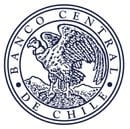
| Banco Central de Chile (BCC)




Banco Central de Chile (BCC)
The legal department at BCC takes a pivotal advising role on international and domestic projects concerning the operations of the central bank within the international financial market, and the implementation and development of fiscal policy with an emphasis on modernising banking law in Chile. Its 10 lawyers and five support staff are led by Juan Pablo Araya, the general counsel and attesting officer. In the last year, the team advised lawmakers on the changes to the proposed powers of the BCC within the new bill, which strengthened the Bank’s power to issue and operate pre-funded payment methods, such as prepaid cards. The advice the team gave was innovative because it included elements from the Act which had modified Chilean constitutional law, by creating new duties on the central bank. Additionally, the legal team has updated its regulatory provisions including credit, financing and foreign exchange regulations. These included changes to payment card insurance, high value payment systems, Chilean national finance regulations and the regulation of master agreements of bilateral derivatives that involve a bank established in Chile or an institutional investor. In the Bank’s international monetary strategy, the team has negotiated an extension to the bilateral currency swap arrangement with the People’s Bank of China, implemented regulatory standards in the Bank’s international reserve investments and sovereign wealth funds and assisted the negotiations of free trade agreements involving central bank policy. The team also assisted in the international monitoring of Chilean jurisdiction on topics such as the assessment of observance of the CPSS-IOSCO principles for financial market infrastructures in Chile. Araya, leads the team with his extensive experience and reputation for his excellent handling of the team during the global financial crisis using traditional and innovative monetary policy tools to protect the institutions’ liquidity. He led the recent expansion and development of the legal team which he states ‘injected fresh wisdom… and provided specialised counselling to the board and staff in the various technical fields the Bank is responsible for’. Araya played a crucial role, supported by the team, in advising and supporting the Bank’s board and financial policy division in preparing new financial regulations including the rules applicable to electronic payments. Other stand-out team members include Pablo Mattar Oyarzun, chief counsel of normative legal services, and Mauricio Alvarez Montti, chief counsel of corporate legal services. Mattar provides advice and specialist legal opinion on ‘regulatory issues regarding the exercise of normative powers in connection with monetary, financial and foreign exchange operations, the issuing of institutional or internal by-laws to implement transparency, lobbying, conflict of interest and ethics legislation’, according to Araya. Alvarez focuses on internal regulatory compliance, in particular implementing and monitoring Dodd-Frank and EMIR standards, and providing advice on these areas. Araya said that Alvarez ‘contributed to the development of the whistle-blower channel; the ethics compliance program of Banco Central de Chile; the implementation of the ethics committee and also drafted the new code of business conduct and ethics for managers and employees of the company’. The whole team has a leading reputation of credibility in managing the legal requirements of BCC, operating in one of South America’s strongest economies, with a reputation for high transparency and ethical standards and have led the modernisation process of banking in Chile.